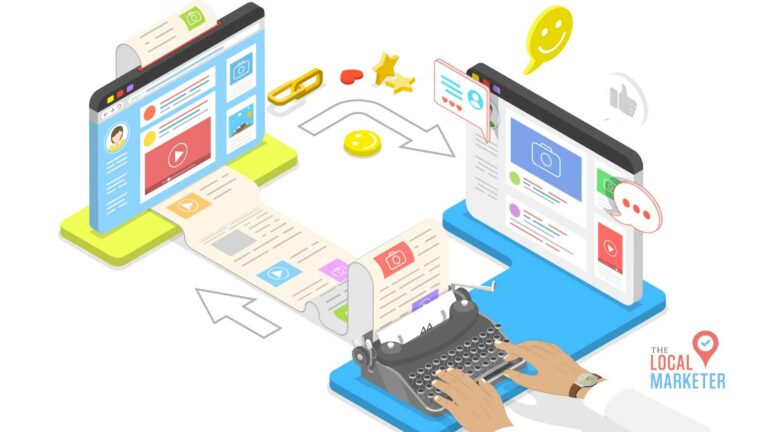11 Unique Approaches to Online Marketing for Small Businesses
To help small businesses thrive online, we’ve gathered eleven unique marketing strategies from professionals, including Marketing Consultants and CEOs. From boosting SEO with customer queries to engaging customers with virtual pop-up shops, these experts share their unique approaches and outcomes. Dive into these insights to discover new ways to promote your small business online.
Boost SEO with Customer Queries
Marketing can be very expensive, especially if you need to buy Google Ads to drive qualified traffic to your website. The number one tip for small businesses is to write down every single question they’ve ever gotten and answer it on their website.
The small business owner is the subject-matter expert. Answer every question you’ve ever gotten from customers and answer them on your website to boost your SEO, but also build trust with your audience.
Group the content into four buckets to create content at every stage of the buyer’s journey: 1) Problem Unaware 2) Problem Aware 3) Solutions Unaware 4) Solution Aware This is a long-term play that will play out in six to nine months, but it’s free besides the invested time to create and publish the content.
For local businesses, keep in mind to make it relevant to your geographic area and include your location as keywords throughout the content.

Sascha Hoffmann, Lifecycle Marketing Consultant, Sascha Hoffmann
Increase Visibility with an Interview Series
I developed a unique interview series for a small business startup that had a team of executives and partners. In this thought-leadership video series, I asked them a range of questions on their expertise and related topics of interest to their target market. We repurposed the video content into various written formats for micro-content, which was distributed across social media and email. By taking this omnichannel approach and having each executive share it with their networks, we were able to greatly increase visibility and reach.

Lindsey Tague, Fractional Content Marketing Consultant
Attract an Audience with Email Marketing
To promote my business, I mainly opted for email marketing. Through my presence on social networks, I promoted my email list to attract qualified leads.
By email, I broadcast more exclusive and detailed content and talk about my offer. With previews and exclusives, I can build loyalty. This approach allowed me to double my income last year and to have a very qualified audience interested in my content and my offers.

Phyllis Gbango, Email Marketing Consultant, PhyllisOriane
Establish Expertise with Educational Videos
Create a series of educational videos that answer common questions about your industry or niche and upload them to YouTube.
For example, a law firm could create videos about common legal issues such as divorce, child custody, or starting a business. The videos should be informative and engaging, and they should be promoted on social media, your website, and other online channels. YouTube is the second-largest search engine next to Google. If you aren’t leveraging video marketing, you are missing out on a ton of potential leads, sales, and clients.
Overall, creating educational videos is a great way to achieve your business goals and grow your business. By providing valuable information to your target audience, you can increase website traffic, establish yourself as an expert in your field, and generate more leads, clients, and sales.

Chris Rossi, Digital Marketing Consultant, Attorney Sluice
Get More Sign-ups with Interactive Quizzes
Using interactive quizzes to promote our small business online is a novel strategy we’ve adopted. We developed a series of engaging assessments pertaining to our niche that provided participants with valuable insights and suggestions. To access their personalized results, users were required to submit their email addresses, enabling us to simultaneously build our email list.
The results were remarkable. Not only did the surveys increase website traffic significantly, but they also generated high conversion rates for email sign-ups. We then used these email addresses to nurture prospects with relevant content, special offers, and product suggestions. This resulted in a considerable increase in sales. Sales rose 40% in the first quarter after using this method.
The quizzes also promoted social sharing and viral growth, organically broadening our audience. We gained new clients and built a community around our brand with this strategy, which helped us succeed online.

Jessica Shee, Senior Tech Editor and Marketing Content Manager, iBoysoft
Capture Customers with Micro-Moments Marketing
At our digital marketing agency, we’ve embraced the concept of “Micro-Moments Marketing” for small businesses. It’s all about catching potential customers at those fleeting moments when they’re looking to learn, discover, buy, or do something.
For a local bakery, we capitalized on these moments by creating real-time ads that would pop up during morning hours, suggesting freshly baked breads and pastries. This resulted in a 35% spike in online orders and a significant boost in foot traffic during breakfast hours.

Joe Troyer, CEO and Growth Advisor, Digital Triggers
Target Locals with Geo-Fencing
We set up a geo-fence around competitor locations and high-footfall areas relevant to our business. When people entered these zones, they received targeted ads on their mobile devices for our small business.
The outcome? A 25% increase in foot traffic and a 30% uptick in conversion rates within the first two months. It’s a cost-effective way to directly target potential customers in real-time, based on their physical location.

John Cammidge, Freelance Google Ads Consultant, JCammidge
Expand Reach with Collaborative Live-Streaming
To promote my small e-commerce business, I leveraged collaborative live-streaming. I partnered with complementary businesses in my niche and conducted joint live-streams where we showcased each other’s products. This cross-promotion attracted a broader audience and generated excitement.
During the streams, viewers enjoyed exclusive discounts and giveaways, driving sales for all involved. The collaborative approach not only expanded our online reach but also fostered strong relationships within the business community.

Adil Advani, Digital PR and Marketing Director, AnySoftwareTools
Enhance Local Visibility with Citations Management
One strategy we’ve championed for small businesses is the meticulous management of citations, emphasizing their Google My Business page. Before delving into other local marketing tactics, ensuring that a business’s details are consistent and accurate across all online directories is paramount. This foundational step might seem basic, but its impact is profound.
By diligently entering and verifying citations, we’ve unlocked a reservoir of free traffic for our clients. Business directories, often overlooked, are a goldmine for local visibility. When a business’s information is consistent across these platforms, it boosts its credibility and enhances its local search ranking.
The outcome? Increased organic traffic, heightened local presence, and a solid foundation for subsequent local marketing endeavors. Essentially, this approach underscores the adage: “Well begun is half done.”

Shane McEvoy, MD, LeadFly
Engage Customers with Virtual Pop-Up Shops
I created virtual pop-up shops for my small business. These limited-time online events mimic the in-person shopping experience, with live product demonstrations and Q&A sessions. Customers get a firsthand look at our offerings and interact with us in real-time, making it more personal and engaging. The exclusivity of these events, combined with special discounts, led to a surge in sales and word-of-mouth referrals. Virtual pop-up shops became a unique and effective way to connect with customers in the digital realm.

Ranee Zhang, VP of Growth, Airgram
Reach Engaged Audience through Influencer Collaboration
A unique approach to market and promote a small business online is by collaborating with influencers. Influencer marketing has become increasingly popular in recent years, and for good reason—it allows businesses to reach a highly engaged audience through someone they trust and admire.
To start, relevant influencers in the industry or niche are identified and reached out to with a personalized message explaining the business and why it would be a good fit for collaboration. This could include offering them free products or services in exchange for their promotion, or paying them for sponsored posts.
The outcome of this approach has been highly positive. By partnering with influencers who have a strong following and engaging content, the small business has gained significant exposure and an increase in sales.

Zach Shelley, Founder and CEO, A-List Properties







